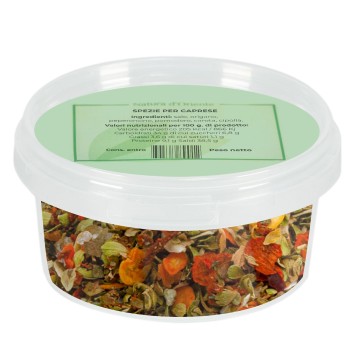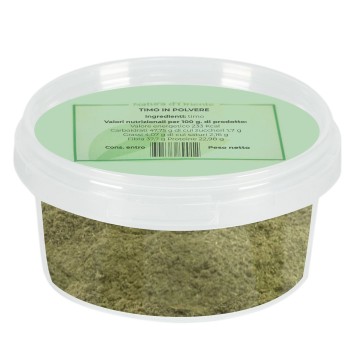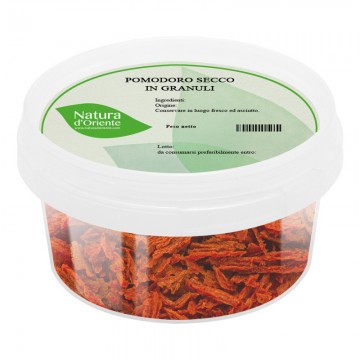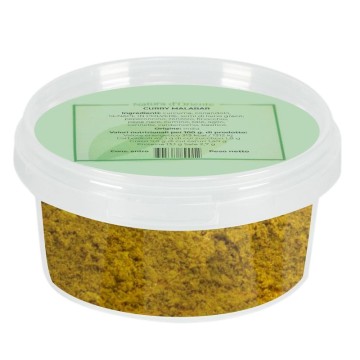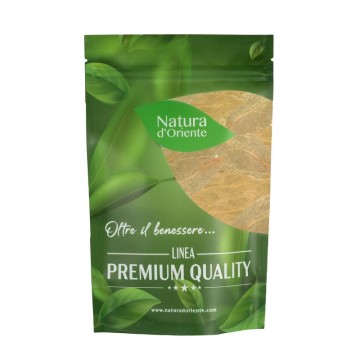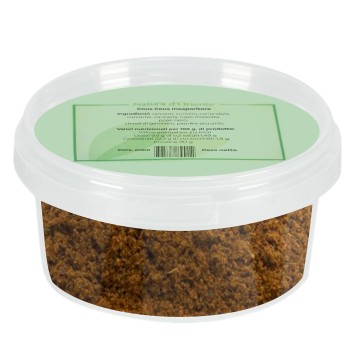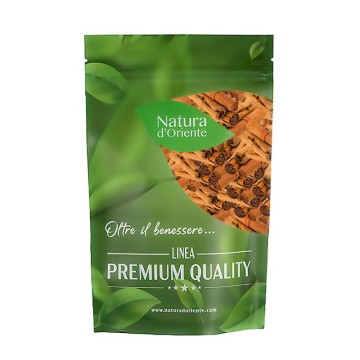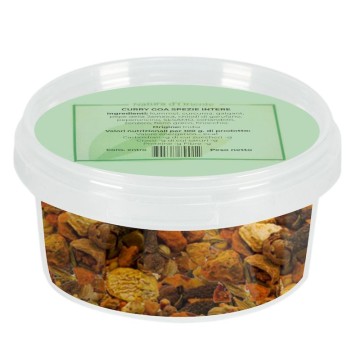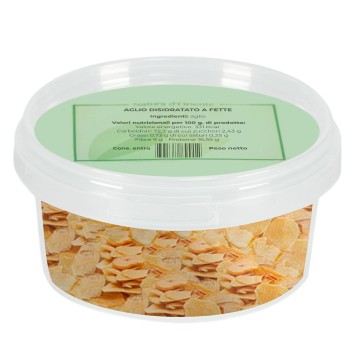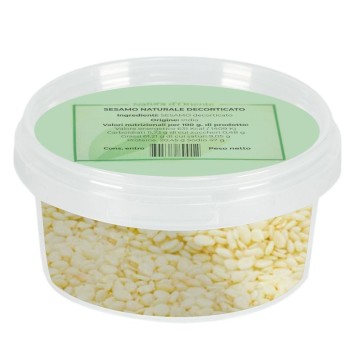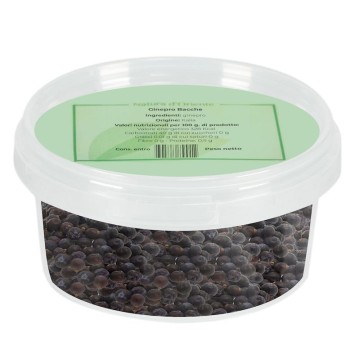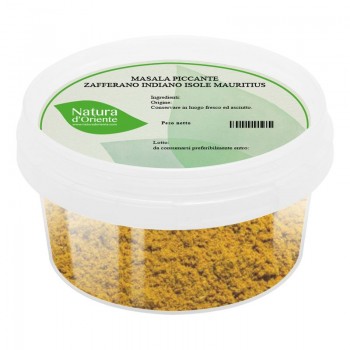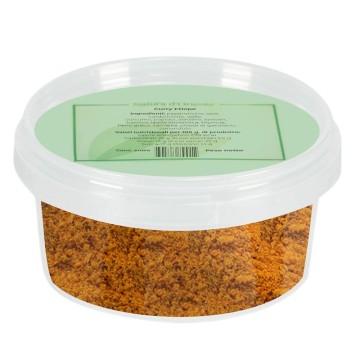Fennel seeds are the spice of this vegetable, already known in many parts of the kitchen. They give dishes a sweet and powerful flavor, reminiscent of anise and licorice, with complex bitter and sweet notes. Traditionally used in Italian cuisine, these seeds enhance their aromatic profile in the superior quality, also excellent for well-being.
In many parts of the world, in fact, fennel seeds have been used for centuries to treat difficult digestive conditions, meteorism and flatulence. In fact, the qualities of the seeds for the transit of food through correct gastrointestinal motility are well-known. They avoid the fermentation processes that occur in the large intestine, thus promoting the elimination of gas and air that accumulate in the stomach and intestine. For this reason, fennel seeds have historically been used to create digestive herbal teas and soothe colic in infants. By stimulating gastric secretion through its aromatic principles, fennel is appreciated both as a spice in food and for infusions and decoctions.
Fennel seeds can also be used as a mouth and breath freshener after meals. From a nutritional point of view, fennel seeds provide important antioxidant nutrients and minerals such as calcium, magnesium, potassium and manganese. Compounds useful for metabolism, muscles and for the well-being of the body. The most beneficial antioxidants are those useful for digestion and purification such as anethole, estragole, limonene and quercetin. The stimulation for diuresis helps eliminate excess fluids and toxins, also benefiting the urinary tract and liver with this purification activity. In addition, the calming action of fennel works to counteract menstrual cramps, while phytoestrogens can naturally balance some female hormones.
For this reason, in the herbal tradition, fennel seeds are used to reduce disorders related to the menstrual cycle and menopause. For those following a weight-loss diet, fennel seeds through infusion can reduce the feeling of hunger before meals, as well as aiding digestion and a flat stomach.
Using superior fennel seeds in the kitchen
This spice adds depth to dishes with a delicate and sweetish flavor, similar to licorice and anise. Its complex and warm notes include some bitter, herbaceous and slightly sweet nuances.
Because of its variety of taste, in the kitchen, creative recipes with fennel seeds are increasingly popular. In particular in the version of fennel in superior seeds, high quality and selected, capable of releasing an inebriating aroma in every recipe.
The seeds can be added to dishes and drinks whole or ground, and in the Eastern tradition they are often toasted to release the aromas and flavors intensely. They give a crunchy consistency, toasted in a non-stick pan over medium heat, before adding them to dishes. Otherwise, you can chop the seeds coarsely with a knife: as it cooks the fennel softens, releasing the oil and flavor better. Alternatively, they can be incorporated freshly ground, making the spice fine and easy to spread evenly.
Meat and fish: they are excellent flavor enhancers for pork dishes, suckling pig, sausages and cured pork products. They also spread exquisite aromas on veal, beef, lamb and chicken; they can flavor roasts, grills and stews. They are also associated with seafood dishes such as fish fillets, salmon, tuna, shellfish, sweet shellfish and seafood soups.
Baked goods: the seeds add flavour and aroma to white bread, rye bread (Northern Europe), focaccia, rolls, breadsticks, taralli, crackers and other bakery specialties.
Savoury recipes: they combine well with tomato-based sauces, roasted or stewed vegetables, potato specialties, spreadable cheeses, ricotta and pecorino. Excellent seeds to grind on the spot to create marinades for barbecue meat, tofu or vegetables. The seeds enhance legume soups and can be added to salads - such as melon and avocado, walnuts, etc.
Spices: Fennel seeds are an essential ingredient in some spice mixes such as Indian curries or Chinese five spices. They combine with anise and dill, cumin, coriander and turmeric. They can be added freshly ground to meat or tofu flavourings: tasty dry rubs before grilling or roasting, withcombining ground fennel with paprika and black pepper.
Sauces: they create an aromatic taste added to sauces and gravies, gourmet creams, gravies and marinades. In tomato-based pasta sauces they give a delicate aniseed undertone. They can also be used to flavor butter, oil and other foods for seasoning eggs, salads, cheeses, etc.
Drinks: superior fennel seeds are suitable for creating alcoholic beverages, incorporated into herbal syrups, to flavor milk, fruit juices, vegetable milk.
Dessert: freshly ground, they become a high-quality ingredient for cakes, biscuits, sorbets or ice cream, desserts with lemon, apple, pear. The aromatic qualities are excellent combined with orange peel, honey and even chocolate.
Infusion: these seeds are known in the diet to aid digestion and in cases of intestinal meteorism; to reduce swelling and promote a flat stomach. Add to boiling water, 1 teaspoon of fennel seeds for each cup (250 ml), and leave to infuse for about 7-10 minutes.
Decoction: 1 teaspoon of fennel seeds in cold water, should be brought to the boil, boiling for about 5 minutes; filter and then sip.
Perch strips with lemon and breadcrumbs
Ingredients: 4 perch fillets - 4 tablespoons of extra virgin olive oil - 1 tablespoon of breadcrumbs - 1 clove of garlic - 1 tablespoon of fennel seeds - juice of ½ lemon - 1 tablespoon of chopped parsley - salt Preparation Cut the perch fillets into strips (or cubes). Put the oil and a crushed clove of garlic in a pan, to fry quickly. Add the perch fillets and the fennel seeds, toasting until the fish takes on color. Add salt and lemon juice to the preparation. Cover with a lid and let evaporate. When the lemon juice has been consumed, add the parsley and 1 tablespoon of breadcrumbs. Raise the heat to stick the breadcrumbs. Turn off and insert into individual dishes, sprinkling the recipe with the breadcrumbs left in the pan.
Origin and cultivation
The fennel plant is Foeniculum vulgare, belonging to the Apiaceae (Umbelliferae) family. It is native to the Mediterranean area, where it grew wild, but has been cultivated for centuries for the edibility of multiple parts of the plant.
It can be annual, biennial or perennial, it displays bright yellow umbrella-shaped flowers, green leaves similar to those of dill and seeds that are collected in early autumn. When the Foeniculum reaches the end of flowering, the yellow flower heads that sprout turn brown. The seeds are collected and dried to obtain whole fennel seeds for sale.
Known since ancient times, the fennel plant is thought to have been cultivated since 1500 BC. It was known to the Romans, Greeks, Egyptians, Chinese and Indians for its edible, digestive and expectorant value. It was also used as a talisman or symbol in various religious rituals.
Fennel seeds were used as an aromatic spice in many Ayurvedic and Mediterranean dishes, and in several cultures they were used to flavour liqueurs such as gin and absinthe.
The original Greek name for fennel, marathos, meant "to lose weight" as the seeds were used by athletes to control their weight. The site of the famous Greek battle of Marathon, in fact, was a plain where fennel grew abundantly.
Pliny the Elder, a historian of ancient Rome, believed the plant to be a source of many benefits, and even in the Middle Ages it was widely used as a food, a healthy natural remedy and as a symbol of protection for the home. Fennel seeds were also used in traditional Chinese medicine (TCM) and Ayurveda. Transformed into a poultice against snake bites, they were considered useful for increasing appetite, calming nausea and relieving stomach swelling, and stimulating milk production in nursing mothers. Even today, fennel seeds are used, as they have been for thousands of years, both in cooking and for well-being.


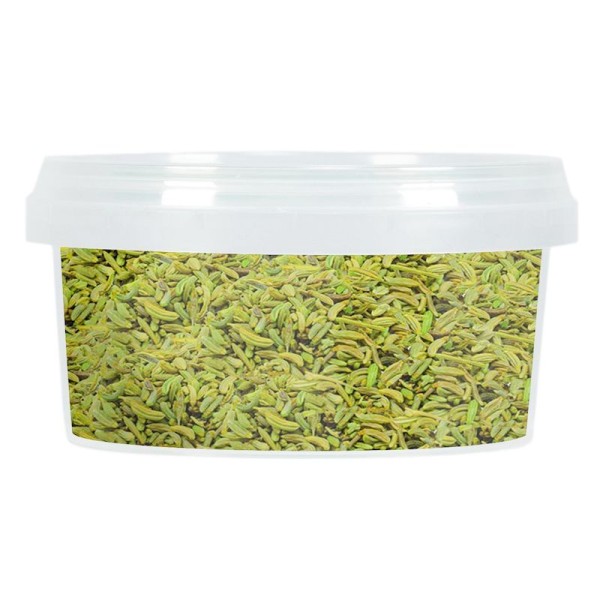






 No reward points for this product.
No reward points for this product.
